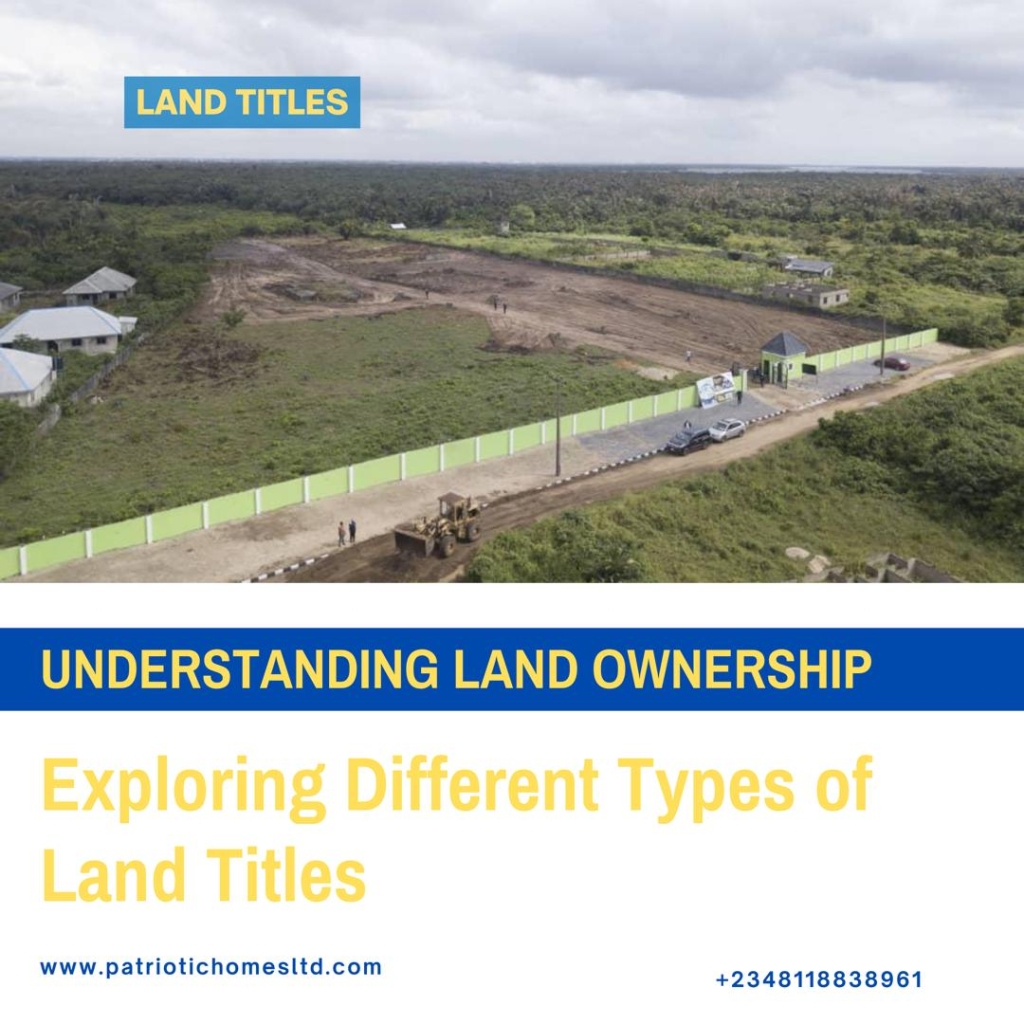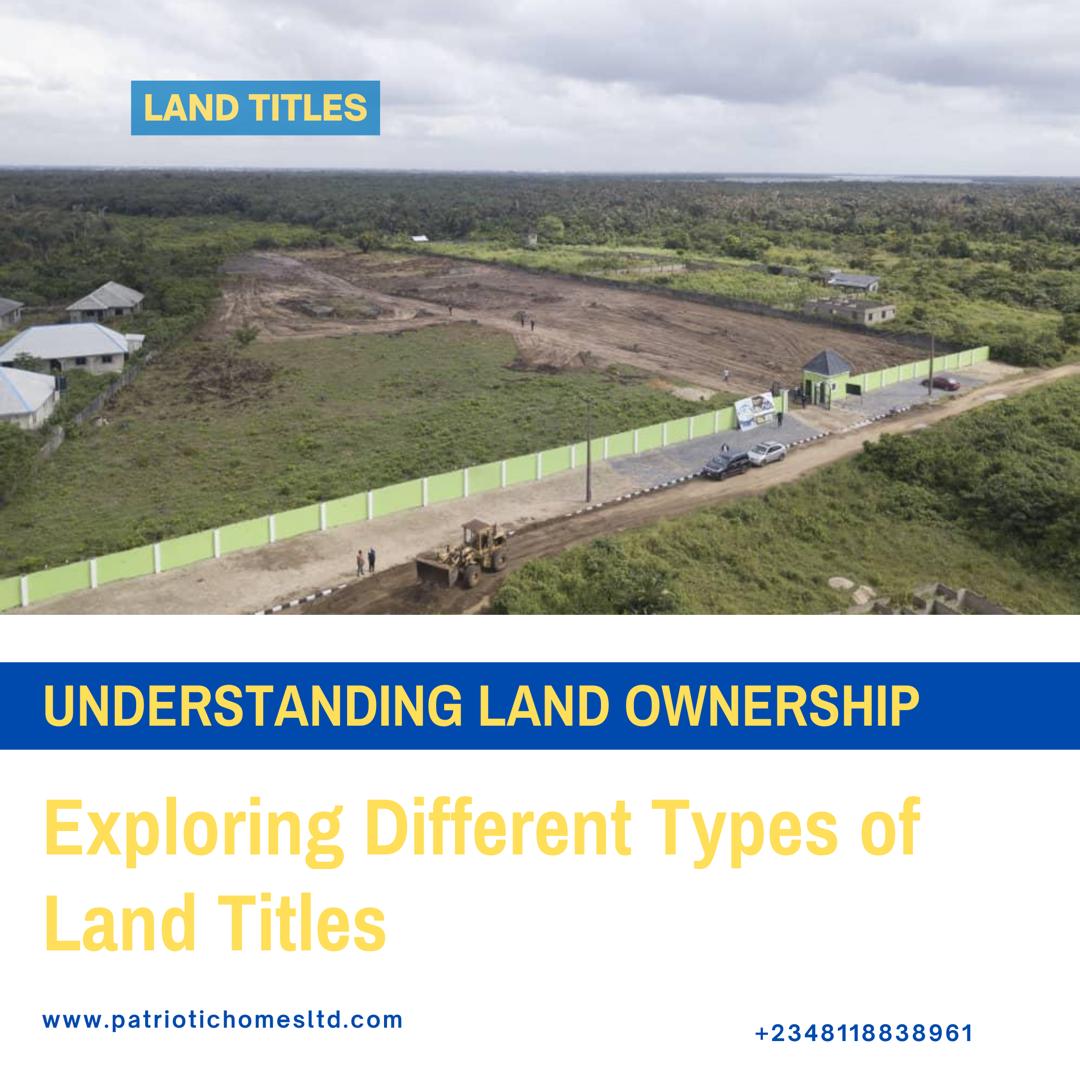
In Nigeria land ownership is governed by various types of land titles, each carrying distinct legal implications. Understanding these titles is essential for land transactions, as each title confers different rights and obligations. Here is an overview of the most common types of land titles in Nigeria.
- Certificate of Occupancy (C of O)
A Certificate of Occupancy, commonly known as a C of O, is one of the most recognized land titles in Nigeria. Issued by the state government, it provides evidence that the holder has been granted a statutory right of occupancy over a parcel of land. The C of O confers a leasehold right for a period typically set at 99 years. This title is essential because it solidifies the holder’s rights to use, transfer, or develop the land within the legal framework. The C of O is generally issued to both individuals and corporate bodies and is the primary title needed to secure long-term usage and protect land interests in Nigeria. - Governor’s Consent
Under the Nigerian Land Use Act of 1978, all land in each state is vested in the governor. Therefore, any subsequent transfer or sale of a property with a C of O requires the governor’s formal consent to make it valid. This is known as the Governor’s Consent, which is an endorsement on a transaction that legally recognizes the transfer of ownership. Without the Governor’s Consent, any secondary transfer of property ownership is considered invalid. This title serves as an essential step in securing and registering ownership transfer, protecting buyers from potential disputes. - Deed of Assignment
A Deed of Assignment is a legal document that formalizes the transfer of land ownership from one party to another. When a property owner sells their land or property, they must create a Deed of Assignment to document the change in ownership. The deed specifies details about the property, including location, size, and purchase price. While it serves as proof of transfer, it must be registered at the appropriate land registry to ensure it is legally binding. This title is necessary for anyone who purchases property in Nigeria, as it clarifies and proves ownership transfer. - Freehold and Leasehold Titles
Freehold and leasehold titles are other common forms of land titles, especially in areas where traditional land tenure systems operate alongside statutory land ownership. A freehold title grants the holder permanent ownership of the land, without time limits. It is common in areas controlled by traditional rulers or families. In contrast, a leasehold title grants temporary rights to use the land for a fixed period, after which it reverts to the original owner. Leasehold agreements are typical in urban areas or with commercial properties and are often granted by local or state authorities. - Excision and Gazette
Excision is the process by which the government releases a portion of land to indigenous families or communities, who in turn have the right to allocate or sell it. Land that has been excised is published in the official government Gazette, making it known and recognized as private land. A Gazette is thus a publication indicating that a specific parcel has been excised, freeing it from government acquisition. Buyers often request proof of excision and Gazette records before purchase to ensure that the land is not under government restriction. - Right of Occupancy (R of O)
Right of Occupancy (R of O) is a title that grants temporary rights to occupy and use land but does not offer ownership rights like a C of O. Issued by local governments, the R of O often serves as a preliminary title and can later be upgraded to a C of O. This title is mainly for residential and agricultural purposes.
Conclusion
Land ownership in Nigeria involves a variety of titles, each serving specific purposes and granting different levels of control. Understanding these titles is crucial for ensuring secure land transactions and avoiding legal issues, as each type determines the rights, responsibilities, and limitations associated with the land.

